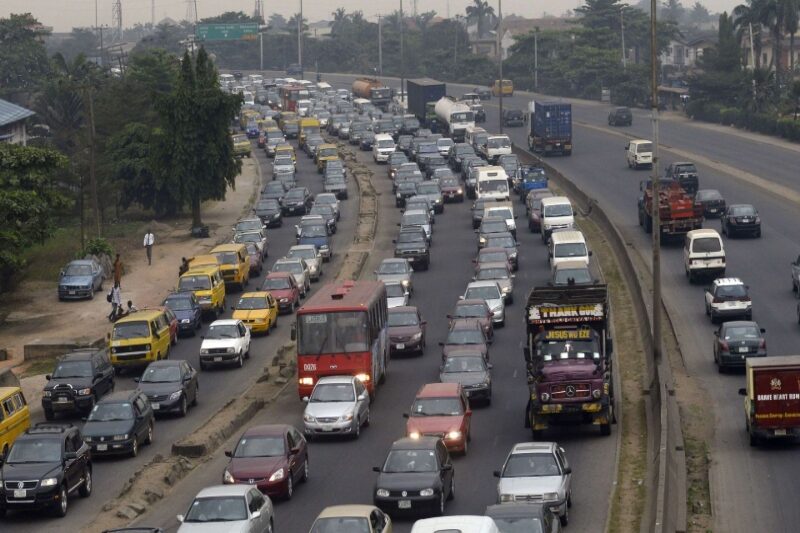The announcement of the removal of the fuel subsidy by Nigeria’s newly inaugurated President Bola Ahmed Tinubu has sparked concerns among citizens and has resulted in “panic buying” as many rush to filling stations to buy petrol before the cost increases even more.
When the president made the announcement, he did not say when the removal of the fuel subsidy would take effect. His administration has since said it would take effect only from July 1 and that panic buying was “needless”.
Tinubu stated on Monday, May 29, during his inaugural speech at Eagle Square in Abuja, Nigeria’s capital city, that the subsidy was “gone”.
He said he had taken the decision because the 2023 budget had not provided for the payment of the subsidy from the second half of the year.
The removal of the subsidy would ease pressure on government expenses.
After the announcement, many filling stations hiked the fuel price. Some even stopped selling fuel altogether. Citizens claimed they were “hoarding fuel” which they would then sell at a higher price once the removal of the subsidy took effect.
Most citizens said the “panic buying” was taking place because most Nigerians feared a drastic rise in the price of petrol.
Mohammed Hussaini Mohammed, a public affairs analyst, said fuel subsidies were a form of government intervention to reduce the cost of fuel by providing direct financial support to oil companies to subsidise the product to consumers.
“Nigeria is one of the largest producers of crude oil not only in Africa but worldwide and it depends solely on its crude oil resources for its economic growth.
Mohammed said that there were advantages and disadvantages to scraping the fuel subsidy.
“One of the primary advantages of removing the fuel subsidy is that it will fund other sectors of the economy. In the past, the government spent a significant portion of its budget on fuel subsidies which amounted to trillions of naira that can now be better spent on education, healthcare, job creation, infrastructural development, road networks and transportation, among others.
“However, Tinubu’s decision to remove the fuel subsidy is because the previous administration of former president Muhammadu Buhari did not provide for the payment of the subsidies from the second half of the year.”
He said Nigerians needed to be patient with the decision because there would be some negative effects, such as a hike in fuel prices, increases in the cost of food, as well as a higher cost of living. These challenges and hardships would face the citizenry for some time.
“Nigeria is not the first country to remove the fuel subsidy to fast-track national development and economic growth. Many oil-producing countries, such as Saudi Arabia, Kuwait, Qatar, Afghanistan and Iran, among others, have done the same. Nigerians must be strong enough to accept and support the new government’s decision with good faith.”
News agency Reuters said that the Nigerian government could no longer afford to pay the “costly fuel subsidy” which amounted to ₦4.3 trillion last year. For the first half of this year, ₦3.36 trillion was budgeted.
It quoted Mele Kyari, the Nigerian National Petroleum Corporation (NNPC) chief executive, as saying: “The reality is that from today the government can no longer afford to pay for fuel subsidies as a nation.”
He told Reuters that the NNPC was owed ₦2.8 trillion in outstanding subsidy payments by the government.
Kyari’s comments came after long fuel queues returned to Nigerian cities as motorists rushed to fill their tanks; some retailers hiked prices amid uncertainty on the timing of the removal of the subsidy.
Tinubu said on Monday there was no provision for the subsidy in the budget, saying “so the fuel subsidy is gone”. Many Nigerians took that to mean the subsidy would be immediately removed.
Residents of Maiduguri, the capital of Borno State in the northeast, expressed divergent views on the issue.
Yunusa Husaini said that fuel subsidy had not yielded any positive results or benefits for the common man and people were already buying fuel at between ₦300 to ₦400 per litre.
“Sometimes the price of fuel is even higher than that. It is a major setback to national development. That is why the fuel subsidy should be removed.”
He urged the government to introduce a price-control mechanism to sustain the implementation of scraping the fuel subsidy.
Ahmed Umar said that cancellation of fuel subsidy would have a negative effect because it would lead to serious hardships, particularly a hike in fuel and commodities prices.
“Upon announcing the planned removal of the fuel subsidy, some oil marketers and filling stations in Maiduguri have already started hoarding fuel, creating an artificial fuel scarcity and, in so doing, the fuel price has increased. The government needs to put in place proactive measures to address the challenges before implementing the decision on removing fuel subsidy.”
Mohammed Mustapha said even before the announcement that the fuel subsidy would be abolished, people were already queueing up at filling stations to buy petrol at high prices.
He said removing the fuel subsidy was a welcome development.
“But the government must make fuel available across the country. This would be a little easier once the newly commissioned Dongote’s oil refinery has started operations fully.”
• Reuters said Nigeria commissioned the Dangote Refinery on Monday, May 22. The 650,000 barrels per day refinery plans to produce 53 million litres a day. The plant plans to export surplus petrol, turning Africa’s biggest oil producer into an export hub for petroleum products. It also plans to export diesel, according to Aliko Dangote, Africa’s richest man, who funded the refinery’s construction. Dangote said the priority was to ramp up production to ensure the refinery could fully satisfy Nigerian demand and eliminate “the tragedy of import dependency”.
SHETTIMA LAWAN MONGUNO






